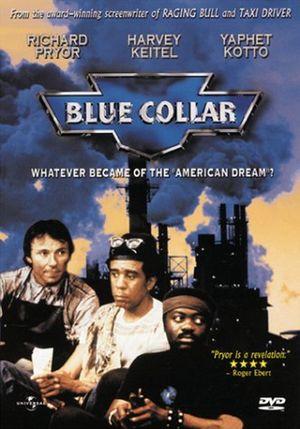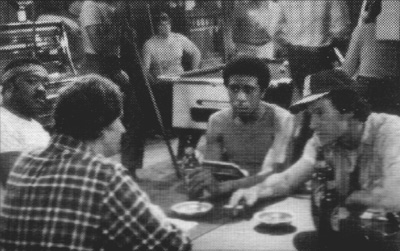December 13, 2005
In memoriam

Whilst reflecting on Richard Pryor's death - and no-one is more eloquent on this matter than the pawboy - it is worth remembering one of Pryor's least celebrated achievements, his masterly playing of the lead role in Paul Schrader's Blue Collar, a film that is, justly, a favourite of Savonarola's. Shot through with Schrader's signature Calvinist nihilism, unflinching in its depiction of the institutionalized complicity of 70s Unions with capital, Blue Collar could hardly be described as straightforwardly leftist. Yet is there a more powerful debunking of that hoary old myth of the US as a classless society than this?
Pryor, scarcely recognizable even at the beginning of the film when his loose-cannon factory-floor rebel at least bears some resemblance to his trademark persona, is by the end of the movie a haunted wreck, a mirthless, wised-up dupe of the reality principle, about as far from the invincible, quickfire, stand-up jester we know and love as you can imagine. At the start, Pryor - who won't let either the Union officials or managment forget the small things, the things that, when, day after day, they're still not fixed, make life unbearable - is the Conscience dogging every compromise and sell-out the Union tries to push through. The question he relentlessly poses - 'What makes your family matter more than my family?' - permits no hiding place for those who would feather their own nests at the expense of their fellows. By the end, though... by the end, he is inducted, bought and sold, a company man... effervescence suffocated by a shame-faced realism, no longer the Conscience but the man dimly haunted by the pull of the Conscience he once was.... A parable for the (then) coming times...

UPDATE: Savonarola comments:
'It's interesting that in a sense the film reverses Pryor's much
hagiographed Damascene moment, when he walked off-stage after one of his
many accommodating, "Uncle Tom" performances, and decided to turn to the
often painfully confrontational politicised stand-up that he became better
known for (the "wino/junkie" sketch, excerpted in today's Guardian and on
the superb Live & Smokin' DVD, is quasi-Artaudian in its levels of
visceral discomfort and distortion).
By the way, in his 'Blue Collar Blues: Proletarian Cinema from Hollywood'
(now in the collections Gods and Monsters), Peter Biskind has this to say
about BC:
"Schrader's militantly anti-left, apolitical stance makes him an unlikely
choice to do a film like this, and apparently no one was more surprised
than Schrader himself. He told Cineaste that he "didn't set out to make a
Marxist film," but while he was working on the script, he "realized it had
come to a very specific Marxist conclusion. It seemed the only way to end
it." Well, beggars can't be choosers, so we had better not look this gift
horse in the mouth."
Biskind also goes on to eulogize the film, especially its final moment, as
"didactic cinema at its best", so that the Marxist truth, as it were,
transpires through the abjection of surrender, and the negative
possibility of political (rather than merely human, erotic or criminal)
solidarity, as in the last lines of the film:
"Everything they do, the way they pit the lifers against the new boys, the
old against the young, the blacks against the whites, is meant to keep us
in our place."'